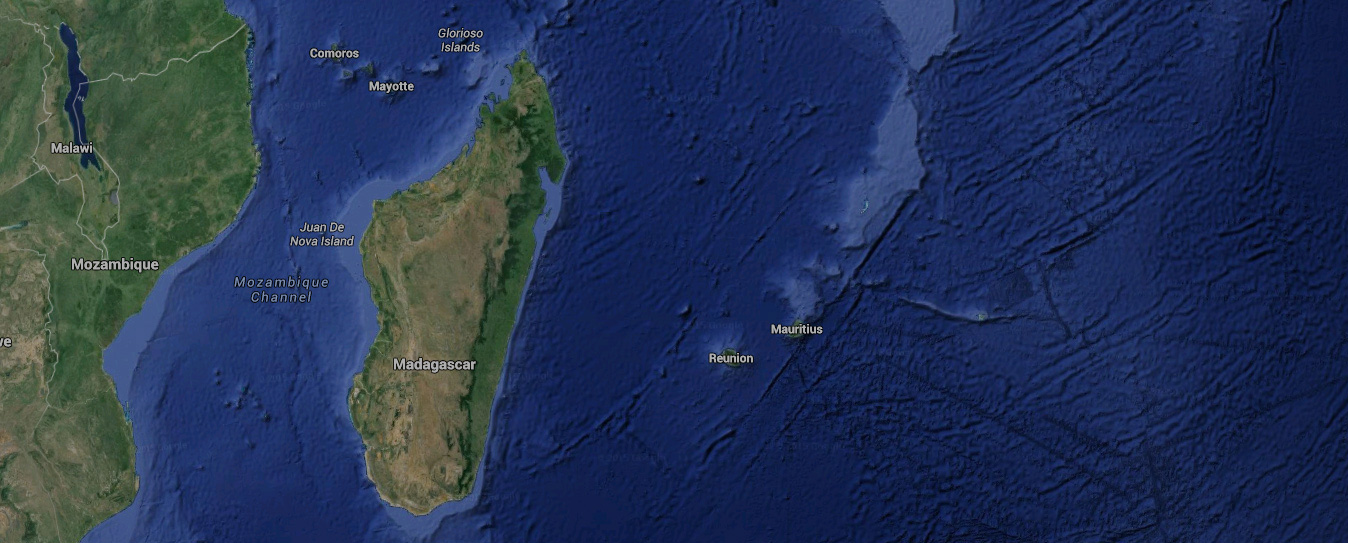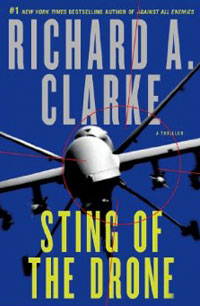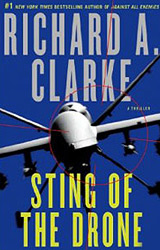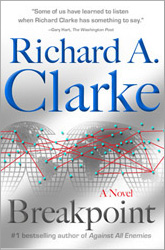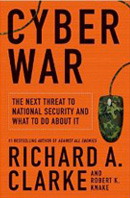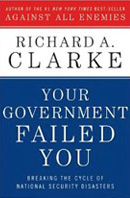Monday, August 15
Grinzing
Vienna, Austria
Herman Strodmann rang the bell as he drove the first trolley of the day out of the little, end-of-the-line station at 0600. He loved driving the number 38 route because he could walk to work from his cottage, at the edge of the Vienna Woods, on the hill above Grinzing village. He walked by the house where Beethoven had written the Second Symphony. He thought of the 38 tram as a time machine, taking him in half an hour from the quaint, traditional wine stubels and heurigers of eighteenth century Grinzing to the hectic modernity of downtown Vienna. He especially liked the first kilometer of the route, when the tram had its own rail bed to the right of the road. On that stretch he did not have to share the street with cars.
There he could get the two car trolley up to a decent speed. As he was doing just that, he noticed a blue BMW in his rear mirror.
The car was accelerating quickly up the Grinzinger Alle behind the tram. It was going to overtake him quickly, Strodmann thought. What was the rush so early in the morning? As the tram approached the corner of Hungerbergstrasse, the exclusive rail bed ended and Strodmann guided the trolley on to the street. As he did, for a second he lost sight of the BMW. Then, suddenly, it was veering right in front of the tram, aiming into the Daringergasse. Herman Strodmann hit the brakes just as the trolley smashed into the BMW and rode up over it, crushing the passenger compartment.
In seconds, the BMW 525 erupted into an orange ball of flame shooting twenty-five feet in the air. The flame scorched the windows around the trolley driver’s seat and leaped in the small, open side window, giving Herman Strodmann second degree burns on his left arm. He quickly threw open all the doors for the few passengers to get out and then he leapt from the crippled tram. He could see that the flames instantly incinerated the man driving the BMW.
Karl Potgieter had known when he bought the car that it was a younger man’s vehicle. Although he was 72, partially retired, and now working as a consultant to the UN’s Vienna-based, International Atomic Energy Agency (IAEA), he was fit and looked much younger than his years. A nuclear physicist, he was a South African citizen, but had lived in Austria for twenty-two years. Every weekday morning, he drove himself into Vienna for an early Fruhstuck, breakfast, at his favorite haunt, the Cafe Lantman next to the Burgtheater on the Ringstrasse.
That morning, his usual waitress, Maria, wondered where he was. She learned about the crash a few hours later. Word spread quickly as to why the 38 tram route was closed. Later, Maria would read that poor Dr. Potgieter’s body was burned beyond all recognition and was only identified by dental records. It did not help her calm down to see the picture of the flaming car dominating the front page of Kronen Zeitung the next day. Maria knew he had been such a nice man, such a good tipper. She also knew that it was such bad luck. There were so few fatal accidents with the trolleys.
Herzliya, Israel
Dawid Steyn and his wife Rachel enjoyed living in Herzliya Pituah, near the beach. It was an expensive neighborhood, but the house was big enough for her mother to live with them and take care of the girls. It was also close to Israel’s Silicon Valley. Rachel could drive to work at Google in ten minutes, including the time it took to drop Dawid off at the train station. For Dawid, the train ride into Tel Aviv gave him just enough time to scan the Jerusalem Post. He usually tried to get a seat on the upper level of the double decker train that ran from Binyamina through Tel Aviv to Ashkelon. On the 07:08 train, that was usually not a problem. If he waited for a later departure, the upper deck filled up before the train got to Herzliya, but Rachel was an early riser and Dawid had adjusted to her ways long ago, so making the early train was easy.
His eighteen minute commute, from Herzilya, a town named after the father of Zionism to a train station named for the original Israeli military, the Haganah, reminded him every day of the origins of his adopted country. He and his father had moved to Israel after his mother died, when Dawid was ten. His mother had been Jewish, so Dawid gained Israeli citizenship automatically through the Right of Return. Now, with his father dead, Dawid Steyn carried on the family’s international investment business from a small office in Tel Aviv. No one could tell from the Steyn office suite’s modest size that the firm managed over two billion dollars in assets, and as of this week it was two and a half billion.
He looked up as the train stopped at Tel Aviv University, watching the students disembarking. They looked so young, but he reminded himself that it was almost fifteen years ago that he had graduated from that school. In less than a decade, his own girls could be riding this train to University, if Rachel’s mother could ever let go of them.
At 07:26 the big, red, double-decker train from Binyamina pulled into track three at Tel Aviv-HaHagana station, from which Dawid would normally catch the line 16 Dan bus to his office near the beach promenade. He was among the last to get off the train, at the rear of the crowd making its way up the platform to the escalator, his head still in the Post as he walked. There was a push, then a shove. Startled, Dawid looked up as the man hit against him hard, sending him off the platform and on to track four just as the express from Nahariyya pulled into the station.
Dawid Steyn, 35, was the first person to die on the tracks at the HaHagana Station. It was almost 08:30 when the Tel Aviv Police reached Rachel at her desk at Google. Her first emotion was guilt, that she had been wrong to mock Dawid’s paranoia, his theory that people were following him.
The Address hotel, Mall of the Emirates
Dubai, United Arab Emirates
“Room Service,” he heard from outside his door. Marius Plessis thought room service was the best part of his condo-apartment in the hotel, that and the fact that he could walk to all the restaurants and stores in the Mall. It was also a five minute taxi ride to his office and a fifteen minute drive to the marina where he kept his boat.
He threw on his robe, tying it closed as he made his way to the door. He had set the time for breakfast delivery at 0900. Was it nine already? He had gotten in late from the airport the night before. His flight from Zurich had not landed until after midnight. Rubbing his eyes, he opened the door. “Please, set it up on the balcony,” he said to the waiter. Half the year, the weather in Dubai was delightful and he enjoyed being outside as much as possible. The other half it was so hot that, if he had to be in Dubai then, he tried never to leave the air conditioned environments.
Marius stepped into the bathroom as the waiter pushed the food dolly cart to the balcony. When he emerged, the polite, young Indian stood waiting for him on the balcony, holding the morning papers. “The Khaleej Times, sir, and your Financial Times, as usual,” the waiter said. Marius added a tip and signed for the breakfast.
He regretted that they did not serve “real” bacon. It was one of the few things that he missed, living in Dubai. As he devoured the scrambled eggs, Marius Plessis folded the salmon colored Financial Times so he could read the story on the rise in the price of natural gas. He wondered if it was too late to invest in the new Australian shale fields. He would have to find somewhere new to invest soon, now that the money had hit the accounts he managed. His advisors at the Dubai International Financial Center had been at the office for hours already, straddling the Asian and European markets. He thought he should call them after breakfast, or maybe he would just go over there after lunch at Le Petite Maison. It was a better restaurant, he thought, than the London original, behind Claridge’s.
Finishing breakfast, he rose and stretched, looking north toward Iran. It may be a troubled neighborhood, he thought, but there could be few better places to live than in Dubai. You could get anything here, anything, and nowhere was the standard of living higher. With a modern, high rise, luxury condominium here and another in Vancouver for the summer months, what more could he ask for in life? He never missed the land of his birth, let them have it. They were destroying it, as he knew they would. His two daughters were happily married and living in Toronto and San Diego. He saw them and their babies just enough. They would never approve of the female friends he had here, some of them younger than his daughters, but what was money for if you did not get enjoyment from it. At seventy-one, he was still in great shape, with a little assistance from the pills.
Perhaps, he thought, he would visit the gym after going over to the DIFC. His trainer would be there today, at the hotel’s marvelous spa. He heard the waiter entering the suite to collect the food cart. Marius looked down at the dancing fountains, forty-six floors below, and smiled, contented with his life now, after all of the earlier strife. Then he felt his legs being grabbed at the ankles, his head was over the railing and he was in the air, off the building, falling toward the fountains.
The Khaleej Times would not carry the story of Marius Plessis’ death. Suicides, like his, did not fit in with the themes that the Ruler wanted reported in his papers and, in reality, there were hardly any suicides in the emirate except among the guest workers on the construction projects. White men like Plessis almost never killed themselves in Dubai.
Clarke Quay
Singapore
“I don’t think you need me anymore, Dr. Coetzee,” the attractive Asian woman said, dabbing her mouth with her napkin. “Your Chinese is almost flawless, but I do enjoy our lunches and tutorials, so I will not complain if you wish to continue.” The couple sat at an outside restaurant on the water, enjoying a late and long lunch, in a modern complex of bars, restaurants, and shops where once the old freighters had docked. Now the ships were so large that only the giant cranes could handle their container cargo, at the computerized terminals across the harbor. The current cargo piers were like conveyor belts for the containers, with hundreds of ships lined up just beyond the harbor, waiting their turns to offload and load up.
“Weemin, my Chinese is only fair. When my associates drop the English and start talking rapidly in Chinese, I only pick up about half of what they are saying to each other.”
“That may be, sir, because they do not want you to know what they are saying. They may suspect that you have been taking Chinese lessons for years now. After all, they are all spies at the Security and Intelligence Division, the SID, they must know about me,” she said, smiling at the older man.
Cornelius Coetzee looked slightly embarrassed. “I may have led them to believe that our relationship is less than Platonic. I don’t think they know I speak and read Chinese. There is never a Chinese language document in the office. English is the government language, the business language. Chinese is only spoken at home, and, as you say, when they want to keep things from me.”
“How do you know, Dr. Coetzee, that I do not work for your colleagues at the SID? I may report everything to them,” Weemin said, laughing.
“Because you work for my employers’ arch rival, the internal security boys, ISD. My dear, I have known that for years and I must say that your reports to them about me must be very boring indeed.”
“Cornelius, how can you think that?” she protested, mildly. “And if I did work for ISD, why after all these years of having nothing to report about you would they keep sending me out to meet you?”
Coetzee chuckled. “Because they hate the SID so much that any chance they could learn some inside tidbit is worth it to them, however silly that is.”
“I think there is another reason that you want to improve your Chinese,” she suggested.
The check came and Cornelius Coetzee produced a credit card. “Oh, really. And what, please tell, might that be, my little spook?”
“You advise the SID only one day a week now, not because they do not want you to spend more time with them, but because your investments take more and more of your time.” She was dropping all pretense now of being only a Chinese tutor. “You have been investing heavily in China and doing very well where others have not. And just this week you received a great deal more money to invest. They may ask you where that money came from?”
Coetzee, too, had ceased to play the part of the doddering, old, retired spy. “Who might ask me, Weemin?”
“The Internal Security Division, or even your friends at the SID. They must know, too,” she said.
He signed the credit card bill and punched his PIN into the hand held machine the waiter brought to the table. When the waiter was gone, Dr. Cornelius Cotzee looked Weemin Zhu in the eyes and said, very softly, “You know, Weemin, I think you are right. My Chinese has gotten to the point where I don’t need you anymore. May you live a long and happy life.” He rose from the table and walked toward the street, leaving her sitting, somewhat stunned, by the waterside.
He strode quickly toward River Valley Road, past the modern, chain stores and bars, ignoring the sign that read “The Party never stops at Clarke Quay.” The anger was rising up inside him. He had worked for this little city-state country for more than two decades, helping their fledgling foreign intelligence service in tradecraft, talent spotting, and agent handling, everything he had done so well in his own country. His advice had helped them penetrate the US Navy, the Australian Army, the Indonesian president’s office, and the Malaysian police. And what gratitude do they show? When the money entrusted to him by his old colleagues suddenly increases, they think he’s been paid off for spying on Singapore? He had been completely loyal to his new home. Furthermore, who would pay him half a billion dollars US for spying on Singapore? He would have to sell their giant casino complex, that ugly monstrosity, to get paid that kind of money.
He knew that getting mad like this was not good for his blood pressure, so he exhaled and tried to calm down. He reached the road and thrust up his arm to hail one of the ubiquitous blue taxis. As he did, a 9 mm bullet pierced his forehead just above his nose. Cornelius Coetzee leaned backwards and then folded like a Macy’s parade balloon, falling to his knees and then forward, his head hitting the sidewalk and covering it with a quickly expanding pool of bright red blood.
Hearing the shot, Weemin Zhu ran toward him, pulling a handgun from her purse, but there was no one to shoot at, no indication of the shot’s origin. She looked down at Coetzee and knew that the single bullet had been fatal. She replaced the gun in her handbag and removed her mobile. She called the Watch Command at the Internal Security Division and identified herself. “I need a response unit immediately at Clarke Quay. There has been a murder of my subject. The police will be here soon. Do you want me to tell them that this is my case?”
They did want her to. The Internal Security Division thought the police would never be able to figure it out and, besides, maybe Coetzee’s murder would reflect badly on their rival, his employer, the SID. After all, they said to Weemin, a murder in Singapore had to be an espionage related event. There was no street crime in the city.
The Rocks, Sydney
New South Wales, Australia
“I’m taking the rest of the day off. Got some chums in town, going to go do the Manly thing with them,” Willem Merwe announced to his staff as he bounded out of the office of Merwe-Wyk-Roux in the restored brick building in the old part of town. “See you all in the morning.”
His small team was used to him disappearing for rugby, or volleyball on Bondi Beach. It was clear to them that the younger Mr. Merwe was nothing like his late father, who had spent long hours poring over investments and accounts. They should have known that he would be different as soon as he moved them from the downtown office tower to the funky townhouse in the Rocks district. “Roux in the Rocks,” Willy had jokingly proclaimed, his only attempt at a rationale to the staff for moving. The real reason, his staff knew, was that he wanted to abandon the staid old image and become more hip. He never wore a tie and he biked to work. Despite his youth, his investment strategies had paid off, Chinese computer components media, real estate. One of them must have just hit big, the staff assumed, because he had told them that morning that there was a substantial amount more to invest and he wanted ‘transformational” ideas.
At twenty-nine, Willy Merwe looked like the All Australian male, tall, blond, broad shouldered, with the muscled legs of a champion bicyclist. No one on Bondi would have guessed he was an immigrant and, if they had, no one would have cared. He was cool and Australia was a nation of immigrants.
Merwe locked his bike on the rack at Circle Quay Ferry Terminal and ran for the 3:15 boat from Pier 3 to Manly Beach, across Sydney Harbor. He made his way upstairs to the bar, got a KB Lager and then climbed higher up to the top deck, which was open to the sky and the breeze.
He looked back at the Sydney skyline and smiled. It was a view that always made him happy, the Opera House, the Bridge, the skyscrapers. He never understood why so few people came up to the top deck, like now, when he was the only one there. Why also did people live in these crowded financial centers like New York, Tokyo, or London, he wondered, when you could bloody well do the same bit of business in a city that was livable and liked to have fun.
He knew his team at the office thought he was going over to Manly Beach for a good time. He did not want to disabuse them of that idea, because it was actually to meet up with some people from his father’s organization who had showed up in town without notice and suggested a get together where they might all look like old buddies doing the tourist thing. His dad’s old organization was now his, he supposed. The role was something that he inherited, something he had been trained to do because he had been designated as his father’s successor. There was always a designated successor. Even he had one now, a guy about his age in New Zealand, Paul Wyk.
Willy Merwe, however, planned to do the job for the next twenty years. He would manage the funds, hidden in various safe havens, grow the principal, pay the families on a regular basis and make emergency disbursements when he thought that one of the families had a legitimate need for more. If any family did not like his decision, they could appeal to the four others, but no one ever did. He was fair and he was generous. He was also more successful with his Discretionary Investment Fund than any of the other four had been in the last two years. Now that they had made the Deacquisition Decision, as he and Karl Potgieter had advocated, there was a real opportunity to put some big money to work. Willy Merwe never forgot what he had learned in his Finance class at Wharton: there are opportunities only open to big money, opportunities to get IRRs in the forties. “It takes big money to make big money,” Professor Meitzinger had said. Now, Willy thought, I am going to do just that.
Instead, he felt a sharp, overwhelming pain in the back of his skull, so dominating his consciousness that he never felt the fall until he hit the water. His brain was so jarred by the impact of the strike to his head that he was unable to send messages to his arms and legs. His body was swept up in the spinning water of the ferry’s propeller wash. No one would be too surprised that another drunken passenger had fallen off a Sydney ferry and drowned. Unfortunately, it happened a lot.
Sunday, October 2
Policy Evaluation Group
Navy Hill, Foggy Bottom Washington, DC
SCIFs, Sensitive Information Compartmented Facilities, weren’t supposed to have windows, but his did. Dugout loved to stare out at the Potomac and the jumble of trees on Roosevelt Island. Usually there were rowers on the water on Sunday afternoons, but not today.
Sunday afternoons were a great time to work. No one else was in the building, except maybe the guys in the little room that passed as an operations center and they were probably watching football. It was even more pleasant for Dugout to work when Sunday was like today, rainy. It was not a cold or windy rain, just steady, and it darkened the sky. A good day to be inside, with hot Earl Grey tea in a mug, sweetened by honey he had bought at the Farmers Market.
Dugout blamed the dark sky for his sleeping in, but it may also have had something to do with the fact that he had played the last set before closing at Twins on U Street. Hadn’t gotten home until after three. The jazz kept him sane, he told himself, playing the tenor sax oiled his neural pathways. He wondered how Mrs. Wrenfrow’s neural pathways had been doing since he had left her yesterday.
Mrs. Wrenfrow was what Douglas J. Randall, III, Dugout to his friends, called the kluged-together cluster of servers that ran his modified Minerva software. He had named it after the ever helpful woman at the Belmont Public Library who had assisted him in finding Curious George books when he was in kindergarten and obscure volumes and articles on mathematics when he was in high school. Minerva, the software package that ran on the computer cluster, was a big data analytics package he had gotten his old boss to buy him from a Silicon Valley start up. Dug had modified it significantly, made it a kick-ass machine learning program, able to plow through the exabytes and zettabytes of data he could access, legally and otherwise.
Saturday afternoon he had set Minerva looking through the last two years of international interbank transfers for any unusual patterns involving non-institutional players, individuals. NSA had gladly given him access to the data. His goal was to find pseudonyms of people who were actually Mexican government officials with overseas accounts which had been the recipients of large deposits from suspect senders. Winston Burrell, the National Security Advisor, had in mind giving a list of miscreants to the new Mexican president who was going to visit the White House in two weeks.
Dugout, with is long hair, looked a little like the typical image of Jesus, but with glasses. He had been recruited to PEG from DARPA, the Pentagon’s creative, geek hive. Raymond Bowman, PEG’s first Director, had promised Dugout all the toys he wanted, the chance to work on “things that matter,” and most importantly, a work schedule of his own making. Dugout hated the nine to five mentality and seldom showed up before ten in the morning or left work prior to midnight.
For almost five years now, it had been a perfect home for Dugout, an eclectic band of geniuses with an All Access Pass to the treasure trove of data gathered by US Intelligence and a sub-rosa virtual pathway for their analyses to get to the West Wing. Then, last year, Ray Bowman had left, gone on indefinite Leave of Absence. As PEG Director he was supposed to be a desk jockey, but Winston Burrell had asked him to save the US drone program from its critics, foreign and domestic. In the process, Bowman had been forced to go operational, become a field guy, and stop a major terrorist attack in the US. In the end, he had stopped the attacks, but also had dealt up close with a lot of deaths, including some people very dear to him. After that, Bowman had checked out, disappeared, and left Dugout to catch some of the balls the National Security Advisor had sent bouncing off the left field wall.
Dugout tapped his keyboard to uncover the results of his search. He was surprised at how many people around the world had gotten several deposits into their personal accounts, each of ten million dollars or more. He then asked the program to list those who in one month got sums totaling one hundred million dollars, and then in one hundred million dollar increments up to one billion dollars. Then he asked the software to sort the people into groups with similarities of some sort. What popped up first was not what he was expecting, but with Minerva the unexpected was getting to be the norm.
What was at the top of the list was a group of five men who had each received deposits over a one month period totaling five hundred million dollars each. What they had in common was that they were all South Africans living abroad. Dugout paused a moment to try to guess what else this group of men had in common that made them suddenly so rich. Nothing came to mind.
He entered their names into a master data base of current intelligence and media reports. The current intelligence files had nothing, which meant that nobody in the seventeen US intelligence agencies cared about them. The media files, however, had a few small stories about each of the men. The stories were about how they had died, mostly in bazaar accidents. They were all, now, dead men.
Well, that was something else they had in common, he thought. Then he saw the dates of the stories.
He tapped on the links and pulled up the media accounts of their deaths. All five men had died on the same day, August 15th, indeed at almost the same time, in five different countries. When he taught Intelligence Analysis classes he always pointed out that coincidences do actually happen. This, however, was more than a coincidence. He doubted very much these were accidental deaths, although the media stories indicated that, except in Singapore, the police thought they were.
“All right, Minerva, let’s see what you can do with this one,” he said aloud to the empty room. “Time to turn on the Way Back machine.” He began searching the intelligence archives. Some of the dead South African men had been in their 70s and 80s, so he tapped into files going back to the 1970s, files which had been digitized in recent years. While the search was underway, he made another mug of Earl Grey and tried to recall if South Africa had organized crime. It must, he thought. Everywhere does.
Crime, however, was not the correlation that Minerva made, not unless you think that making nuclear weapons is a crime. These men, or their parents, had all done just that in the 1980s and 90s in South Africa. Their names showed up many time in reports on the Apartheid regime’s weapons activities.
It came as news to Dugout that South Africa had ever made nuclear weapons. He tapped in to the data bases for a quick tutorial, entering the terms “South Africa” and “nuclear weapon.”
Minerva answered that request with a long list of references, in chronological order. The most recent report was not, however, from the 1990s. It was from earlier this year. He pulled up that file. The highlighted sentence read “Although it is unlikely, South Africa must be considered one suspect for the recent nuclear detonation in the Indian Ocean. South Africa is one of two nations suspected of a similar ship-borne nuclear test in 1979.”
The recent nuclear detonation in the Indian Ocean? That, too, was news to Dugout. His next query hit a roadblock. In answer to his input “nuclear test, Indian Ocean, 2014,” he got the following: “An intelligence report matching your query parameters is restricted. Contact your supervisor to determine if you can be made eligible to access the file. Reference TS/Q/G/ 20160909/A751.” From the file designator, Dug realized that the report had been written in August. His five dead men had all expired in August.
With his clearances, it was not often that Dugout hit roadblocks in his data searches. As he stared out the window, wondering what to do next, he realized that one of the few cars in the parking lot below belonged to his nominal supervisor, Grace Scanlon, the new Director of the Policy Evaluation Group. Well, if she were in the office on a Sunday afternoon, at least he probably would not need an appointment. He printed a few files and wandered upstairs. So much for a relaxing, rainy Sunday afternoon alone with his computers, he thought as he strode up the stairs two at a time.
Grace Scanlon had been the Vice President of a Pentagon funded think tank in California. A year ago when the previous Director of the Policy Evaluation Group had placed himself on indefinite leave, National Security Advisor Winston Burrell had tapped her to take over what he thought of as his personal intelligence analysis unit. She had proved a good analyst and a natural manager, but she remained largely clueless about the ways of Washington. Dugout was not surprised to see her in on a Sunday afternoon. She had impressed everyone at PEG as being a hard worker and, the rumor was, she had left her boyfriend behind in Santa Monica.
“God, I thought I looked scruffy today,” Grace Scanlon said, looking up to see Dugout standing in her doorway. “What the hell happened to you. A gang of homeless men stole your clothes and left you theirs? And the hair. Have you been electrocuted?”
He was still getting to know the new Director. People had said she was blunt, had a “New York City street sensibility about her.” Now he knew what they meant. “Sorry to interrupt, but I just hit on something I think you should see.”
A few minutes of story telling later and Dr. Scanlon was
pulling up the restricted report on her desktop monitor. She scanned it and summarized for Dugout. “Nuclear detection satellite saw the double flash indicative of a nuclear explosion on 9 August in the middle of nowhere in the Indian Ocean. No corroborating intelligence from SIGINT or HUMINT helps to explain who might have done the detonation. Analysts speculate about various countries, but they have no evidence to support their guesses. Case remains open.”
“So there was a detonation on 9 August,” Dugout said scanning his notes, “and on 12 August each of five South Africans formerly associated with their nuclear bomb program gets a half billion dollars deposited into their accounts. Three days later they are all dead.”
Grace Scanlon stood up from her desk. In her old grey track suit, Dug thought she was no one to criticize him for looking scruffy. “And you are the first one to make the connection?” she asked. “And you just made it a half hour ago?”
“As far as I know, yeah I am the only one who has seen all three pieces. The bomb blast, the money, and the murders. From what I can tell the local authorities in four of these cases classified the deaths as accidents. Only the guy who got shot in Singapore was classified as a murder.”
“Hard to avoid the conclusion that the cause of death was the bullet between his eyes?” she asked. “You know, Douglas, for the first time since I began working here at PEG I actually think I know a secret that nobody outside of this little outfit knows. We have a little secret. Or should I say a big one?”
“So have you come to the same conclusion I have?” Dug asked.
“My conclusion is we don’t have all the pieces of this jigsaw puzzle, but the ones we do have could be arranged into a very scary picture.” She walked close to him and spoke softly. “We’re going to have to see Winston Burrell tomorrow on this. I’ll get the meeting. In the meantime, you tell no one, but do see if you can find a few more pieces to the puzzle. Hopefully, they won’t look like a mushroom cloud to Winston when you’re done putting them together.”
“I’m afraid they may look like a whole mushroom garden,” Dug said.
“He’s going to fucking love this,” Dug heard her say as he walked out the door. “Potential loose nukes in the middle of a presidential election campaign.”

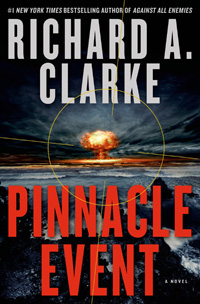
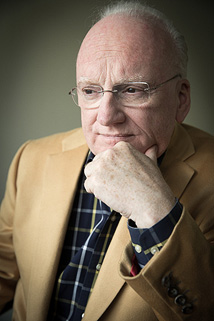

 Twitter @ghsrm
Twitter @ghsrm